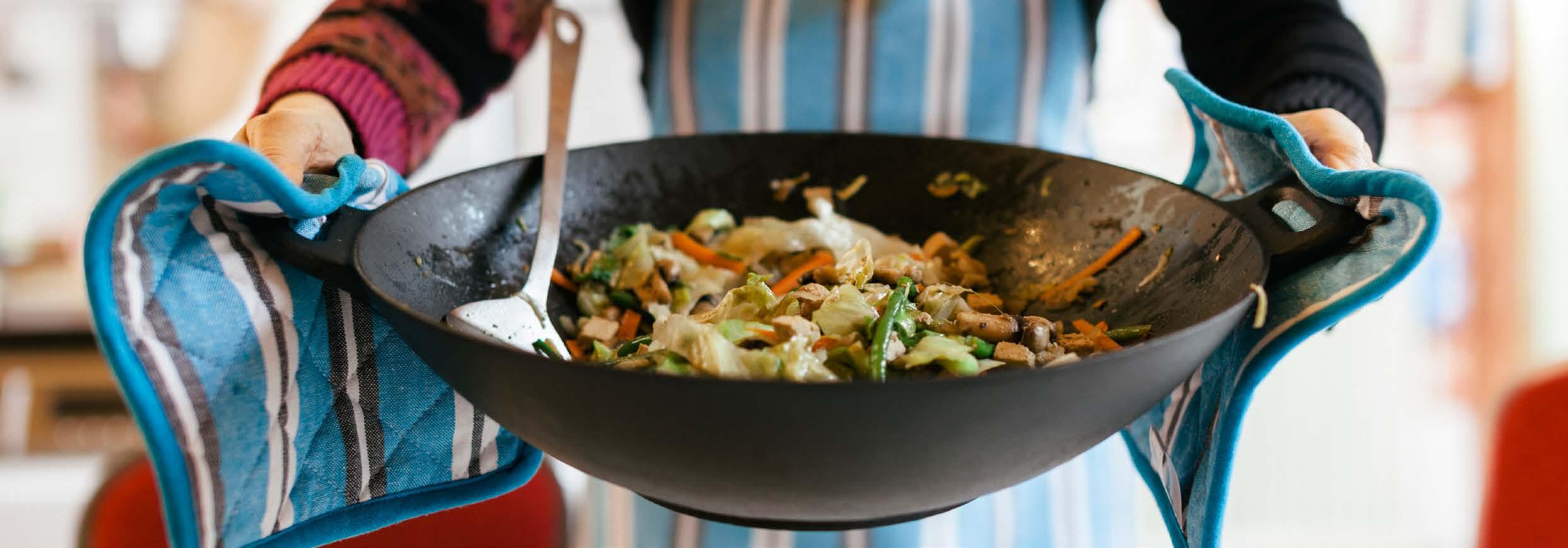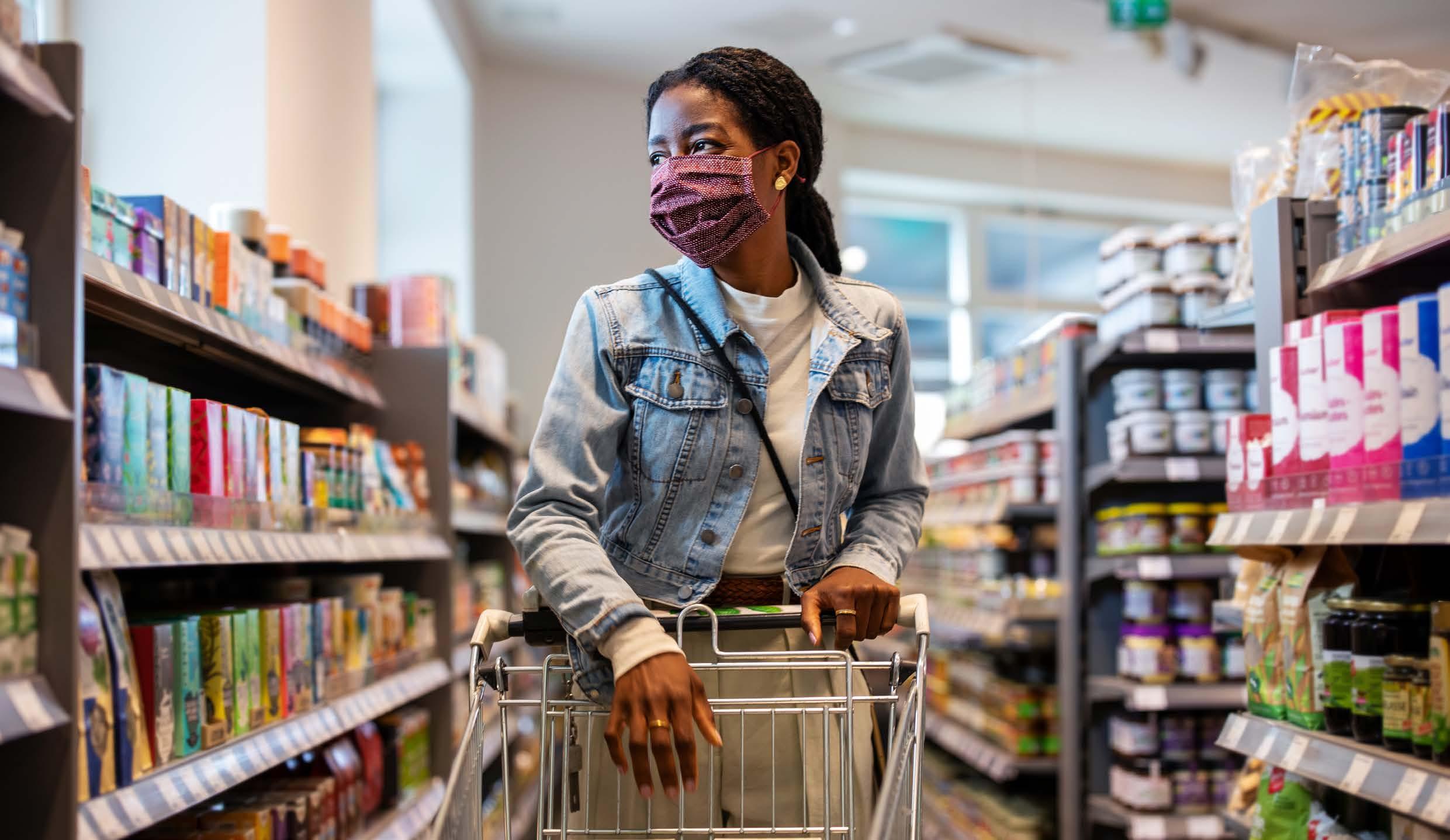
3 minute read
Our Vision and Approach
from Food Savvy | Impact 2020 | Hubbub, Norfolk County Council, Suffolk Waste Partnership | Food Waste
by HUBBUB
Our Vision
The UK is facing a food waste challenge. It is estimated that 7.1m tonnes of food waste was binned by households in 2015 – over 60% of which was avoidable. In Norfolk and Suffolk, this equates to 118,000 tonnes of wasted food annually across the two counties.
During the COVID-19 pandemic, household food wastage of four key items decreased by 34%*. Whether these changes stick long term remains to be seen, but the public’s desire for change is promising.
In August 2020 two thirds of 2,002 householders surveyed expressed that they want to do more to reduce food waste.** Supporting these households to reduce food waste in the wake of the pandemic, and longer term, requires leadership and a coordinated response.
As the climate crisis escalates and household budgets are further stretched, we cannot ignore the imperative to reduce food waste. Food Savvy’s call for communities and businesses
to work together to cut food waste is now louder than ever.
Over the last two years, Food Savvy has used local insight and international best practice to work towards our vision of a 20% reduction by 2025. This report shares our achievements and learning during a year of great change for UK households.
We are calling on more local organisations to join us in our effort in the year ahead.
* April 2020 Wrap research among a sample of 4,197 nationally representative UK adults https://www.wrap.org.uk/content/citizens-and-food-covid-19-lockdown. **Nationally representative polling of 2,002 Britons conducted in Aug 2020 by Censuswide on behalf of Tesco and Hubbub.
Year One and Two Ambitions
Our ambition for the second year of the campaign was to have reached 43,000 local households and helped them to reduce their food waste by 10%, from an average of 3kg per week to an average of 2.7kg per week.
We identified four goals to help us to reach this target.
Goal one
Increased resourcing and leadership across Norfolk and Suffolk.
Goal two
Goal three
Goal four
A stronger network of advocates promoting food waste messaging.
Work with leading organisations in the region to ensure they have skills and capacity to promote behaviour change on food waste.
Households make tangible changes to their lives to reduce food waste.

An Informed Approach
Our approach for Year One and Year Two has been two-pronged, we set out to:
1
2
Develop a communications strategy which works at a regional level and can be rolled out across the #FoodSavvy partnership and amplified by project partners.
Create a range of campaigns and interventions which focus on defined audiences. These interventions have been closely measured so we can scale successes.
Learning from Year One informed where we would focus our efforts in Year Two:
Successes to scale
Collaborations with community amplifiers such as community groups, employers and online influencers which proved impactful and influential Exhibits at high footfall events with take home materials and messages Seasonal campaigns which provide a topical news hook and assets which can be used for years to come Reusable installations such as Banana Drama provide cost effective and reliable talking points for a range of scenarios
Areas for development
Increased message testing with greater targeting of key audiences Pushing light touch versions of Year One campaigns such as the Food Savvy Lunch Club and Kitchen Love in Year Two Increase stakeholder engagement at a local and national level
Year One and Year Two activities were informed by our 2025 Vision which was built upon behaviour change theory and a strong foundation of local research. Further detail on our approach to delivering Year One and Year Two can be found in the #FoodSavvy 2018 Vision and Year One impact report.
Responsive to Change
We began the second year of Food Savvy with a programme of activities based on the learning of year one.
The onset of COVID-19 meant that on the ground events and activities within the project schedule were cancelled.
Covid-19 changed our project plans, but it has also changed our relationship with food, our budgets and our values.
Early in the Covid-19 lockdown, we undertook polling to understand the impact on the pandemic on household food routines. Additional local polling was conducted in October 2020 to further understand the impact of Covid-19 on local households.
Key shifts in the lives of the nation which have impacted and informed the campaign strategy follow.









